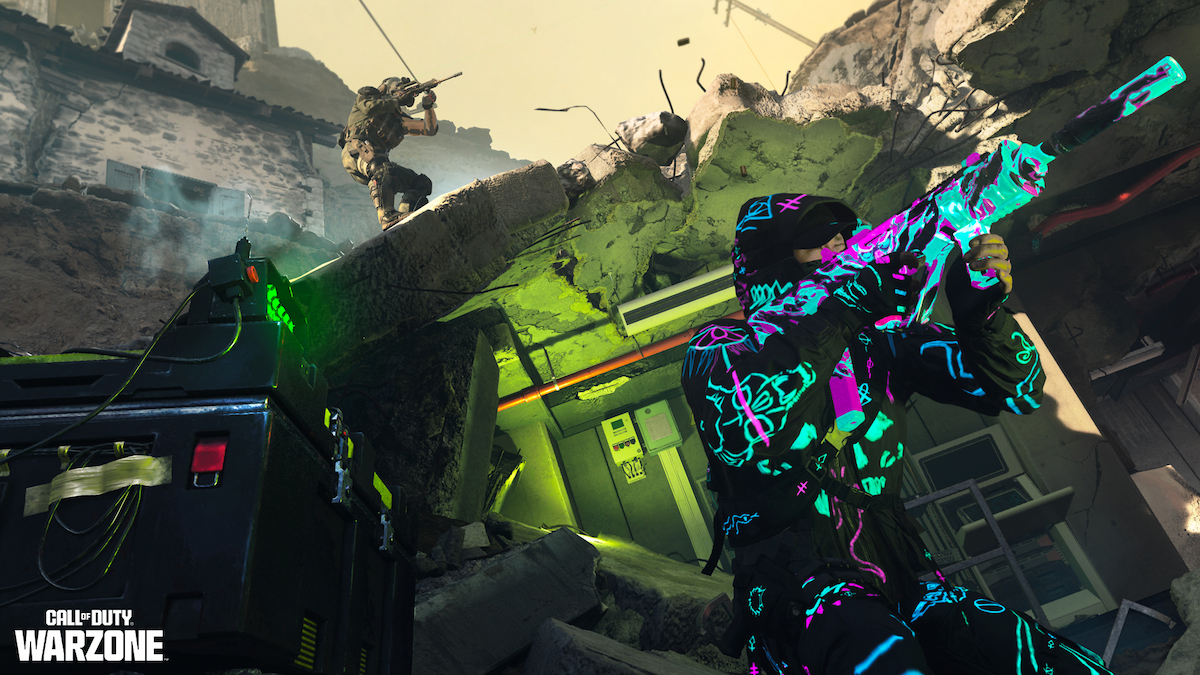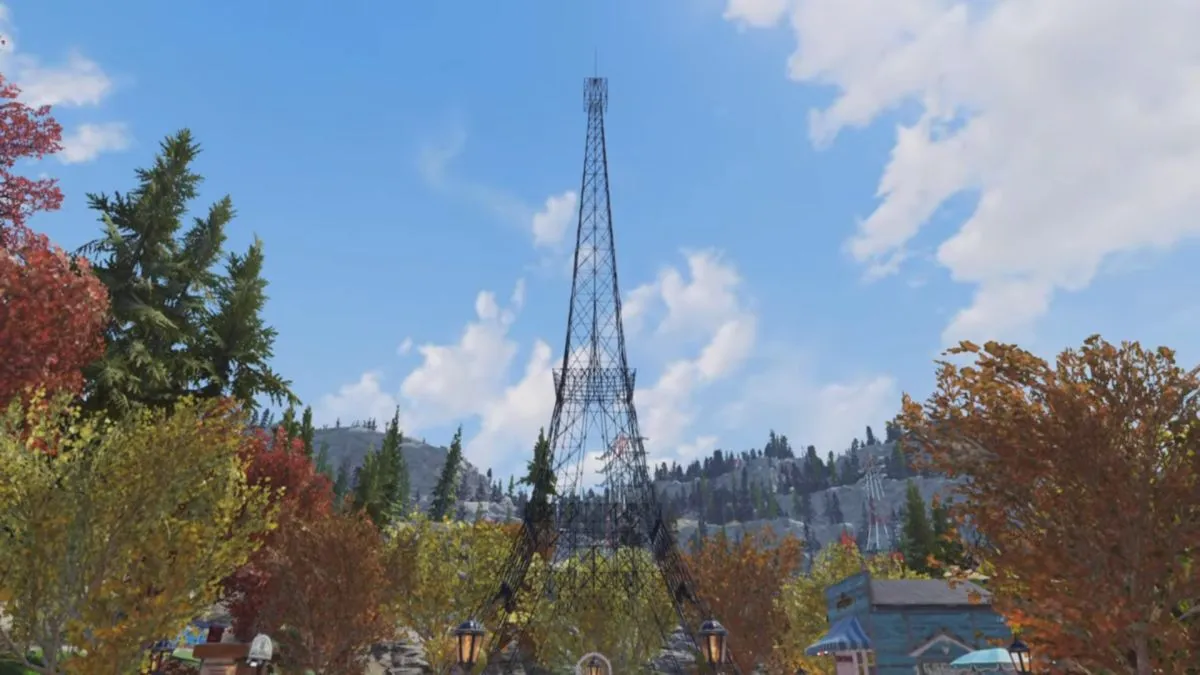[Editor’s Note: We’re not just a (rad) news site — we also publishopinions/editorials from our community & employees like this one, though be aware that it may not jive with the opinions of Destructoid as a whole, or how our moms raised us. Want to post your own article in response? Publish it now on our community blogs.]
There’s this game in the back of my head that I’ve always wanted to play. It’s full of choice and causality in infinite variations, and decisions have true ramifications that ripple and manifest for the remainder of the game. In it, a player can interact with other characters any way they want, and the characters will respond organically; the nature and consistency of your approach to them results in dynamic relationships being forged over time, for good or for ill.
I think the desire for this non-existent game first began back when I was playing both tabletop RPGs and videogames consistently. Dungeons and Dragons gave the potential for infinite variety, but the group I played with only cared about hack and slash, which defeated the purpose for me. I didn’t want my experience to have to depend on another player, and it also lacked the visceral involvement of controller-based gameplay. On the other hand, videogames gave me control, but the choices and consequences were woefully limited by comparison.
Time goes on and still I dream of this game that combines the myriad freedoms and authentic interactions of tabletop gaming with the single-player immersion and immediacy of feedback that only a well-crafted video game can provide. Wish as I might, I still have to face the facts: it’s a pipe dream. Real choice and consequence will never exist in videogames as we know them.
We’re barely a decade removed from when choice really became a staple concern of game design. In 2001, Peter Molyneux was building his post-Bullfrog reputation by championing games like Black and White at Lionhead Games. Despite a later turn of affection from critics, B&W was certainly the first fully realized game of its kind: a title where moral choice had a wide influence over multiple gameplay systems and ultimately the outcome of the game itself. From there, it became more common for choices in games to have fleshed-out consequences that manifested in both the game world and in-game mechanics.
Meanwhile, as causality and morality were being explored in the god game genre, choice and consequence in both story and character interaction became the primary design concern of developers like Bioware. In 1998, Baldur’s Gate provided choice and variance in character interaction in the form of an adapted D&D alignment system, while KOTOR in 2003 offered the classic Jedi/Sith polarities which form the basis of most moral choice systems in games today.

inFamous, Overlord, Bioshock, Fable, and dozens of other modern titles cling to the same basic design methods of story and gameplay systems from these earlier examples, and subsequently they have reaped the benefits in terms of both monetary and critical success. The only problem is that we gamers are a fickle and restless bunch. What once was hailed as unique and a sign of a developer’s mastery of craft is now a source of complaint.
Now, I’m not saying that we should be complacent with cookie-cutter, bi-polar choices, because the medium should always be evolving and providing improved experiences to players. However, most of us probably don’t realize what it is we’re really asking for from our developers when we bitch about only being able to choose good or evil. Every time I hear another played out “rescue the kittens or make jelly out of the kittens” joke, my right index finger twitches as if it’s trying to hit the Renegade trigger on its own.
While my annoyance is an irrelevant matter in the scheme of things, I’m sure this development is exponentially more concerning to game makers. While we as players only evaluate choice in the context of our game experience, game studios are faced with a paralyzing conundrum – generating more choice means generating more content. That content might be writing, dialog, voice-over work, gameplay systems programmed to react to a wider array of variables, and much more.
Implementing this expanded content has its cost on many levels. It takes time and money to put these additional branches in place, and while some elements of a game engine are re-usable for multiple story paths, every branch weighs heavily on the trunk of the tree. Most developers simply don’t have the resources to put multiple branches in place, and even the ones with deep pockets and leeway for extended development cycles are making a sacrifice by taking this route. Every new choice means energy diverted from graphics, art direction, and most importantly, gameplay.
Alpha Protocol is a perfect example of this devil’s bargain in action. The game basically offers a triple branching choice in both dialogue and story — do you go suave, professional, or aggressive? The game implements these elements in a truly effective and engaging way. Everyone I’ve spoken with has had both a different story and even gameplay experience based on the wide spectrum of well implemented choices available, and that is to be applauded. I was able to enjoy the game despite its litany of flaws for these elements alone.
It was a ballsy but ultimately failed experiment that bore much fruit for further exploration. In true min/maxing RPG fashion, what Alpha Protocol gains in story and choice, it surrenders in grand fashion on the visual, gameplay, and level design fronts. Many facets of the game were simply broken. More choice will almost always enhance our enjoyment of a good game, but once this element begins to encroach on gameplay’s turf, that’s when bad things will always happen.

I’ve always been one in the past to look down my nose at graphics whores. I did, and still do, believe that the time, money, and system resources that are allocated toward the pursuit of flashier and more realistic visuals would almost always be better spent improving gameplay or story. However, my experience with Alpha Protocol really got me contemplating my own hypocrisy. Any element taken to extremes will crowd out the core gameplay that makes a game worth playing, my beloved choice and story included.
The truth of the matter is, we will achieve visual realism in games long before we achieve true fidelity of choice and character interaction in games. There are far fewer variables involved in recreating a perfect image than there are in recreating a human relationship or life path; our technology will likely catapult us over the uncanny valley many decades before we meet an NPC who can pass the Turing Test.
There are hundreds of games out there illustrating the point that graphics don’t have to be perfect to be effective. Okami, Shadow of the Colossus, Psychonauts… the list goes on forever. Art direction and stylized presentation can often have a much greater impact than photo-realism. Is it really any different for choice and story?
Sure, the Alpha Protocol experiment shows us that three choices are for many players far better than two. Where does that line of reasoning end, though? Is the next logical step 4 choices? 5? 10? I personally don’t feel that choice in games needs to follow the path of shaving technology; after three blades, the shave doesn’t get that much smoother for the inclusion of additional blades on the razor. It just makes the razor look ridiculous and handle more awkwardly.
Choice in games is no different; the enjoyment of the experience is not directly proportional to the number of options. We don’t need developers trying to add more blades, although in the short term that is one way to keeping pushing storytelling forward. For example, SW: The Old Republic looks to have about 20 blades, but the MMO structure, longer development cycle, and story-branching expertise of Bioware is what makes that possible. In general, that game will probably be the exception that proves the rule.

What we need are developers that are looking to make the 2 or 3 blades they can afford to manufacture as sharp and effective as possible. The Witcher was a sleeper RPG favorite from a few years ago that was widely praised for the use of choice and consequence in the game. The game, however, didn’t rely on quantity of branches to drive player engagement. Every major choice in that game was 2 sided: either help one faction or the other, save this person or kill them, etc.
What made The Witcher‘s story unique was two things — 1. The results of your choices were never clearly bad or good; there was always a sacrifice or a compromise to be made, and everyone didn’t always walk away happy (or alive, for that matter). 2. The results of your choices on later gameplay or story were NEVER telegraphed. As a result, players were forced to make choices based on how they actually felt about the situation and characters, rather than on what items or bonuses (or even ending) they might get.
As gamers, I think we can get smarter about vocalizing what we want to see in our games while still being realistic about what limitations exist. Simply demanding more choices probably isn’t going to get the job done, unless we’re willing to pay a lot more for the branches that would need to be built for that kind of product. A much more reasonable request is to demand more impactful and surprising choice/consequence in our games; it’s achievable, it’s realistic, and it can happen easily within a standard development cycle if you have a little talent and forethought.
I’ll always have that one perfect game in the back of my head, where the possibilities fan out endlessly to the horizon in a glorious fractal of branching player destinies. It’s a shame I’ll never get to play it — this fanciful digital cornucopia of roads less traveled by. No matter; it will always be my internal gaming happy place. And that’s enough for me as I continue to watch games evolve and grow before my eyes.




